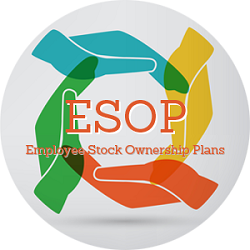Selling an ESOP-owned Company

BCC Advisers – USA – There have been numerous studies outlining the benefits of selling a company to an employee stock ownership plan (ESOP). Whether it is securing the legacy of the business, improving employee retention and productivity, or tax benefits, there are a variety of reasons business owners use ESOPs as an exit strategy. The expectation upon establishing an ESOP is that it will last in perpetuity; however, circumstances can change and there could be instances when it makes sense to later consider selling to a third party. The following outlines some of the more common situations we see leading to a sale of an ESOP company.
REPURCHASE OR DEBT OBLIGATIONS
An ESOP, as a qualified retirement plan, primarily holds stock of the sponsoring company on behalf of the plan participants. Over time, the sponsoring company or the ESOP will need to redeem shares for various reasons including payouts for:
· Aging workforce that will be retiring or diversifying investments
· Employee terminations
· Death or disability of an employee
If a significant obligation is anticipated but the cash (or ability to finance the stock purchase) does not exist, it might be wise to explore selling to a third party for these capital needs.
BUSINESS CONDITIONS CHANGE
The dynamics of any industry change over time. New competitors come into play, product or service distribution methods change, and new risks and opportunities develop. No matter the type of corporate ownership structure, companies are left behind if they don’t stay at the leading edge of changes or find ways to capitalize on new opportunities. The leverage of an ESOP may not allow a company to invest the required resources to keep pace with competitors. On the flipside, a company may experience a decline in business that reduces employment levels to a point that an ESOP no longer makes sense. For example, the unforeseen COVID-19 pandemic has demanded many businesses change course in operational processes, as well as reduce staff just to survive.
LACK OF MANAGEMENT DEPTH
One of the key factors of a successful ESOP is a strong management team that can both operate the business day-to-day and provide forward-looking leadership once the former owner exits. This remains true throughout the life of the business. If a company is not grooming a second level of management to transition into leadership roles when needed, the company may experience operational hiccups in the future. In addition, new leaders must continue to support employee ownership. Companies that do not have a natural successor for the CEO or president roles may find selling to a third party with these resources is the best course of action.
NON-ESOP SHAREHOLDERS EXITING
It is not uncommon for an ESOP to hold a minority interest in the sponsoring company. Sometimes the ESOP will acquire 100% of the company over time; however, what if a non-ESOP shareholder wants to exit without selling more shares to the ESOP? In this case, an interested party could buyout both the non-ESOP shareholder and the ESOP.
UNSOLICITED OFFER
Many companies use acquisitions to supplement organic growth. If your company is on an acquirer’s radar, you will likely receive an unsolicited offer. Although your company may not be on the market, it is important to carefully evaluate all offers to fulfill any fiduciary responsibilities to the ESOP. Leadership can decide if the offer should be countered or rejected, or if the company should run a process to evaluate interest from other prospective buyers.
These are just some of the reasons an ESOP-owned business might consider selling to a third party. In all scenarios, there are many variables to consider before making a decision of this magnitude. Having a solid team of advisors with significant experience dealing with ESOPs can help you weigh the pros and cons of remaining an employee-owned company vs. selling to a third party.
BCC Advisers, a leading M&A advisory firm, welcomes further discussion on this or other M&A topics: Steve Jacobs (steve@bccadvisers.com), Tom Cavanagh (tom@bccadvisers.com) or Kyle Larson (kyle@bccadvisers.com).
Source Article: https://www.bccadvisers.com/news-and-resources/articles/articles/selling-an-esop-owned-company/
< Blog



